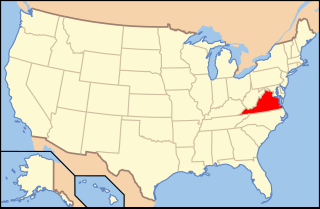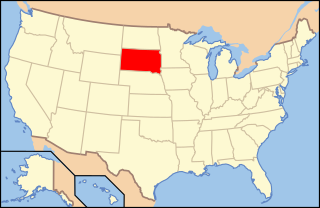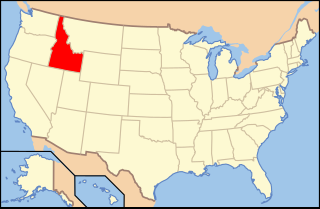See also
- Timeline of LGBT history — timeline of events from 12,000 BCE to present
- LGBT rights by country or territory — current legal status around the world
- LGBT social movements
| |||
|---|---|---|---|
| +... |
This is a list of notable events in the history of LGBT rights that took place in the year 1994.
Lawrence v. Texas, 539 U.S. 558 (2003), is a landmark decision of the U.S. Supreme Court in which the Court ruled that U.S. state laws criminalizing sodomy between consenting adults are unconstitutional. The Court reaffirmed the concept of a "right to privacy" that earlier cases had found the U.S. Constitution provides, even though it is not explicitly enumerated. It based its ruling on the notions of personal autonomy to define one's own relationships and of American traditions of non-interference with any or all forms of private sexual activities between consenting adults.
This is a list of notable events in the history of LGBT rights that took place in the year 1986.
This is a list of notable events in the history of LGBT rights that took place in the year 1998.
This is a list of notable events in the history of LGBT rights that took place in the year 1996.
This is a list of notable events in the history of LGBT rights that took place in the year 1993.
This is a list of notable events in the history of LGBT rights that took place in the year 1985.
This is a list of notable events in the history of LGBT rights that took place in the year 1995.

Lesbian, gay, bisexual, and transgender (LGBT) rights in the United States are among the most advanced in the world, with public opinion and jurisprudence changing significantly since the late 1980s.

A sodomy law is a law that defines certain sexual acts as crimes. The precise sexual acts meant by the term sodomy are rarely spelled out in the law, but are typically understood and defined by many courts and jurisdictions to include any or all forms of sexual acts that are illegal, illicit, unlawful, unnatural and immoral. Sodomy typically includes anal sex, oral sex, manual sex, and bestiality. In practice, sodomy laws have rarely been enforced to target against sexual activities between individuals of the opposite sex, and have mostly been used to target against sexual activities between individuals of the same sex.

Lesbian, gay, bisexual, and transgender (LGBT) persons in Antigua and Barbuda may face legal challenges not experienced by non-LGBTQ citizens.

Lesbian, gay, bisexual, transgender, and queer (LGBTQ) people in the U.S. state of Wyoming may face some legal challenges not experienced by non-LGBTQ residents. Same-sex sexual activity has been legal in Wyoming since 1977, and same-sex marriage was legalized in the state in October 2014. Wyoming statutes do not address discrimination on the basis of sexual orientation and gender identity; however, the U.S. Supreme Court's ruling in Bostock v. Clayton County established that employment discrimination against LGBTQ people is illegal under federal law. In addition, the cities of Jackson, Casper, and Laramie have enacted ordinances outlawing discrimination in housing and public accommodations that cover sexual orientation and gender identity.

Lesbian, gay, bisexual, transgender, and queer (LGBTQ) people in the U.S. state of Rhode Island have the same legal rights as non-LGBTQ people. Rhode Island established two types of major relationship recognition for same-sex couples, starting with civil unions on July 1, 2011, and then on August 1, 2013 with same-sex marriage. Discrimination on the basis of sexual orientation and gender identity is outlawed within the state namely in the areas of employment, housing, healthcare and public accommodations. In addition, conversion therapy on minors has been banned since 2017.

Lesbian, gay, bisexual, transgender, and queer (LGBTQ) people in the U.S. state of Virginia enjoy the same rights as non-LGBTQ people. LGBT rights in the state are a relatively recent occurrence; with most improvements in LGBT rights occurring in the 2000s and 2010s. Same-sex marriage has been legal in Virginia since October 6, 2014, when the U.S. Supreme Court refused to consider an appeal in the case of Bostic v. Rainey. Effective July 1, 2020, there is a state-wide law protecting LGBT persons from discrimination in employment, housing, public accommodations, and credit. The state's hate crime laws also now explicitly include both sexual orientation and gender identity.

Lesbian, gay, bisexual, transgender, and queer (LGBTQ) people in the U.S. state of South Dakota may face some legal challenges not experienced by non-LGBTQ residents. Same-sex sexual activity is legal in South Dakota, and same-sex marriages have been recognized since June 2015 as a result of Obergefell v. Hodges. State statutes do not address discrimination on account of sexual orientation or gender identity; however, the U.S. Supreme Court's ruling in Bostock v. Clayton County established that employment discrimination against LGBTQ people is illegal under federal law.

Lesbian, gay, bisexual, transgender, and queer (LGBTQ) people in the U.S. state of Nebraska may face some legal challenges not experienced by non-LGBTQ residents. Same-sex sexual activity is legal in Nebraska, and same-sex marriage has been recognized since June 2015 as a result of Obergefell v. Hodges. The state prohibits discrimination on account of sexual orientation and gender identity in employment and housing following the U.S. Supreme Court's ruling in Bostock v. Clayton County and a subsequent decision of the Nebraska Equal Opportunity Commission. In addition, the state's largest city, Omaha, has enacted protections in public accommodations.

Lesbian, gay, bisexual, transgender, and queer (LGBTQ) people in the U.S. state of Kentucky still face some legal challenges not experienced by other people. Same-sex sexual activity in Kentucky has been legally permitted since 1992, although the state legislature has not repealed its sodomy statute for same-sex couples. Same-sex marriage is legal in Kentucky under the U.S. Supreme Court ruling in Obergefell v. Hodges. The decision, which struck down Kentucky's statutory and constitutional bans on same-sex marriages and all other same-sex marriage bans elsewhere in the country, was handed down on June 26, 2015.

Lesbian, gay, bisexual transgender, and queer (LGBTQ) people in the U.S. state of Idaho face some legal challenges not experienced by non-LGBTQ people. Same-sex sexual activity is legal in Idaho, and same-sex marriage has been legal in the state since October 2014. State statutes do not address discrimination based on sexual orientation and gender identity; however, the U.S. Supreme Court's ruling in Bostock v. Clayton County established that employment discrimination against LGBTQ people is illegal under federal law. A number of cities and counties provide further protections, namely in housing and public accommodations. A 2019 Public Religion Research Institute opinion poll showed that 71% of Idahoans supported anti-discrimination legislation protecting LGBTQ people, and a 2016 survey by the same pollster found majority support for same-sex marriage.

In Hawaii, the LGBT laws have been evolving for the past hundred years. In the pre-19th century, the influence of Polynesian culture led to a more open-minded state. After the first Christian missionaries began arriving in Hawaii, strict sodomy laws were enacted. Territory v. Bell (1958) was the last sodomy case argued in Hawaii. After the turn of the 20th century, LGBT issues began being taken to and decided by the Supreme Court. In 2013, Hawaii voted in favor of gay marriage, and marriage licenses began to be issued to LGBT couples.
Doe v. Commonwealth's Attorney of Richmond, 425 U.S. 901 (1976), is a decision by the Supreme Court of the United States which gave summary affirmation of a lower court ruling which upheld the U.S. state of Virginia's ban on homosexual sodomy.